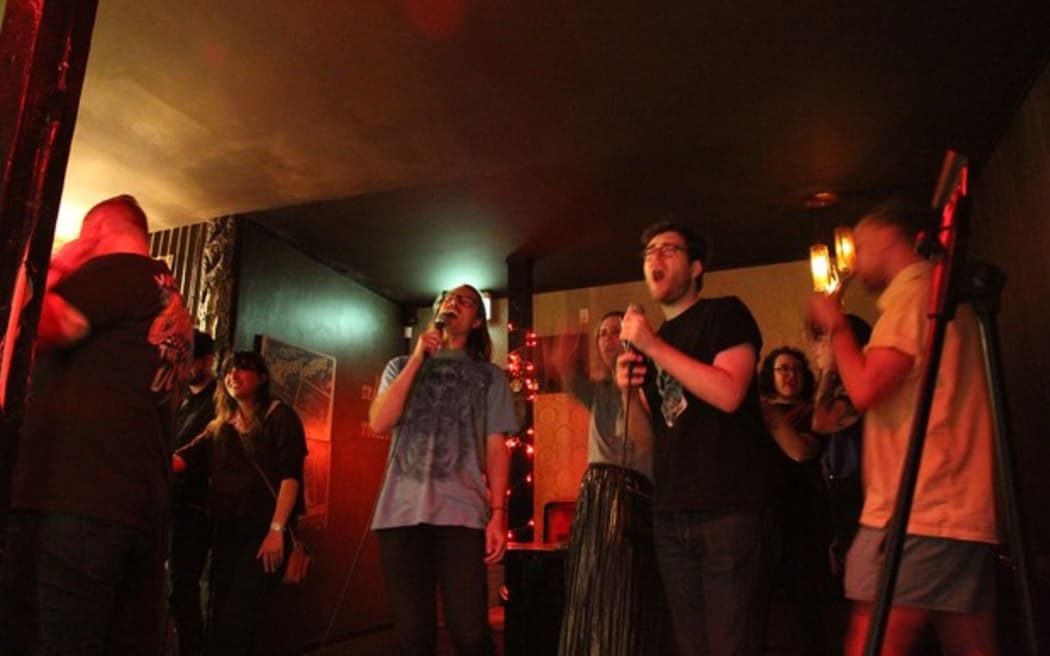In January, Shigeichi Negishi died of natural causes at 100-years-old.
Negishi is regarded as the inventor of the karaoke machine, but despite karaoke's popularity, his death went relatively unnoticed.
Emile Donovan is joined by author and writer Matt Alt, who interviewed Negishi for his book Pure Invention: How Japan Made the Modern World, to reflect on the pioneer's legacy.

Karaoke night at Auckland venue The Lucha Lounge. Photo: Photo by Jenna Todd
Alt says it all started in 1967.
"Mr Negishi was working at a company that he ran that assembled electronics products for other bigger Japanese companies, and one of his coworkers said to him - he heard him whistling and singing when he came into work one day - and said, 'You're not a very good singer, are you Mr Negishi?' just jokingly, and from that joke, it was born.
"Negishisan said, 'You know what? If only he could hear me singing with a backing track, then I could show him. I could show him what a singer I am'.
"And that's really where it began. And he directed an engineer to assemble parts that they had laying around - an eight-track tape deck, a mixing circuit, a microphone, things like this into what became the first karaoke machine."
Negishi called his device the 'Sparko Box', because it featured flashing disco lights on the front that would strobe in time with the music and because he and his partner in particular felt that the word 'karaoke' sounded a little too close to the Japanese word for coffin
Alt said five people did independently invent the karaoke machine in Japan between the years of 1967 and 1971.
"The reason why karaoke was invented in Japan, when Japan by no means invented the singalong, is very simple - it's because of the salary man. A salary man is a Japanese portmanteau of the word for a salaried employee - it basically means a white collar office worker.
"And in Japan of the era, and we're talking in the '50s and the '60s, it was pretty much obligatory that you would have to go out drinking after-hours, after your company closed for the day, with either your coworkers or with a client. And there was a whole nightlife ecosystem that arose to kind of service the needs of salarymen, and music played a big part in that.
"There were cabarets where you had professional singers, there were smaller places where you might pay a wandering musician to play a backing song and you would sing along to it.
"But singing and music always played a big part in this - Mr Negishi's Sparko Box automated this process. It basically cut the musician out of the equation by making this device that you could drop 100 yen coin into and have a song play for you automatically."
Alt said karaoke was a driving force for a lot of Japanese technological development.
"Like from storage media - It went from eight-track tape to cassettes to laser discs to CDs and then streaming over digital lines, and all sorts of devices that we don't actually associate with karaoke today, like the Nintendo Entertainment System or the PlayStation, they were originally sold not only as game systems but karaoke machines in Japan, just to show you how popular of a pastime it was."

